
Almost as soon as I had finished feeding the hungry ghost of Pchum Ben, the sun began to rise on my final afternoon in Phnom Phen. I took a quick nap before making an all-too-quick trip to the Russian Market (so named because the Russians used to shop there), before boarding another tuk-tuk to see the Royal Palace.
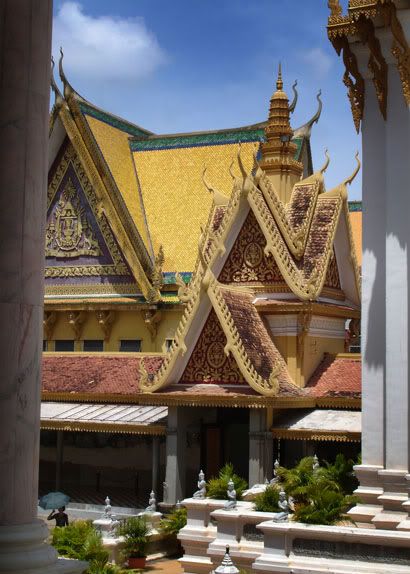
Golden tiles glimmered in the afternoon sun, as the richcolors of the dramatic rooflines anchored themselves firmly in the ocean blue sky like the golden talons of an eagle. As I passed through the gate I was told the palace would close in 30 minutes for the afternoon 'siesta'. Knowing that in 2 hours I would be well on my way to Vietnam, I rushed through the beautifully sculpted gardens overwhelmed by the bold colors, elegant architecture and intriguing skyline of the palace grounds, peirced by strong, A-frame rooftops and spindling spires bent towards heaven like plants towards sunlight.
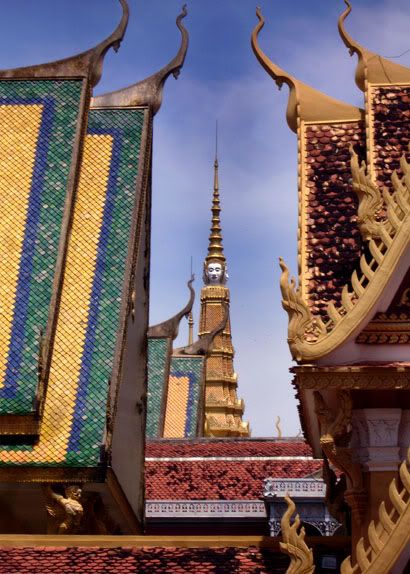

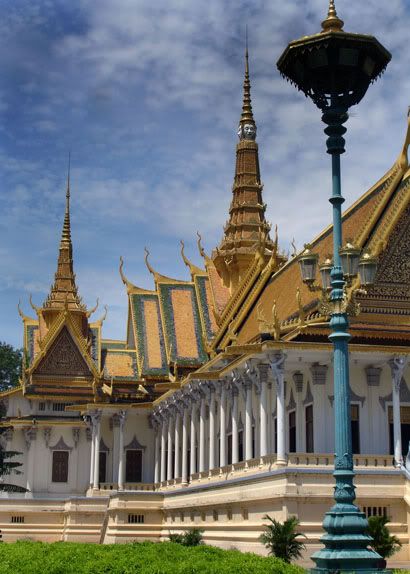
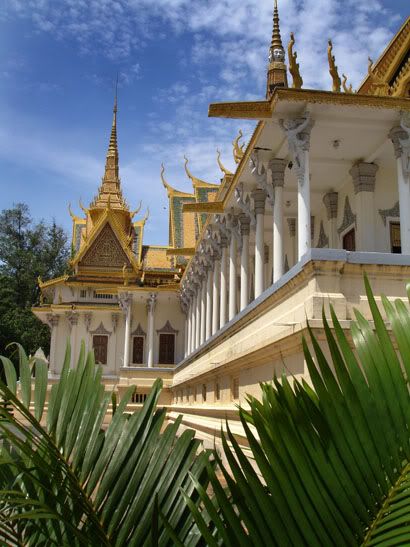
The Royal Palace is the residence of King Sihanouk of Cambodia. It consists of several buildings including the magnificent Throne Hall, where coronations and official ceremomies take place, the Silver Pagoda (so named because the floor is covered with over 5000 silver tiles), an iron house given to King Norodom of Cambodia by Napoleon III of France, libraries, shrines dedicated to the past kings of Cambodia and several royal offices. Many of the precious items once displayed in the Royal Palace and the Silver Pagoda were destroyed by the Khmer Rouge.
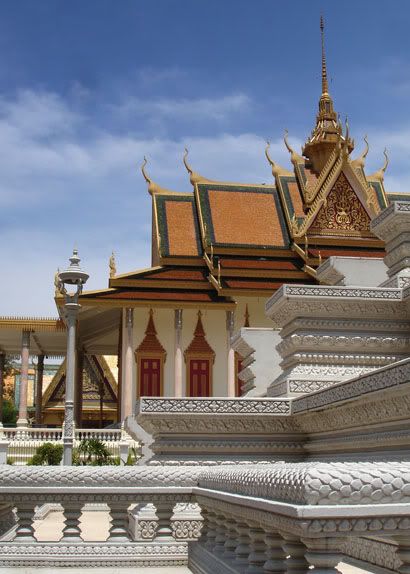
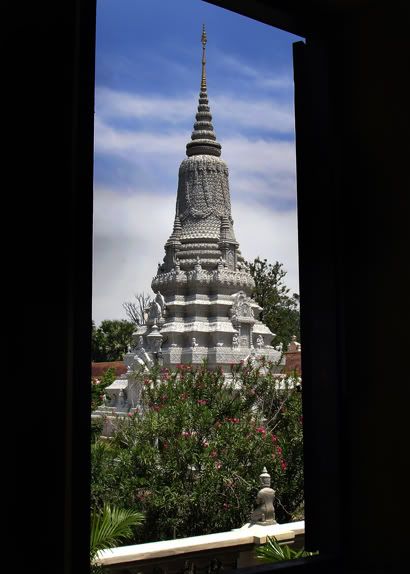
The earliest Buddhist religious monument, built to house relics and remainss and official ceremomies take place, the Silver Pagoda (so named because the floor is covered with over 5000 silver tiles), an iron house given to King Norodom of Cambodia by Napoleon III of France. Many of the precious items once displayed in the Royal Palace and the Silver Pagoda were destroyed by the of the buddha after his death, the stupa evolved into the pagoda as Buddhism spread to other Asian countries. "When a great teacher passes away, his body is no more, but to indicate that his mind is dwelling forever in an unchanging way in the dharmakaya (world of truth), one will erect a stupa as a symbol of the mind of the buddhas" - HH Dilgo Khyentse Rinpoche.
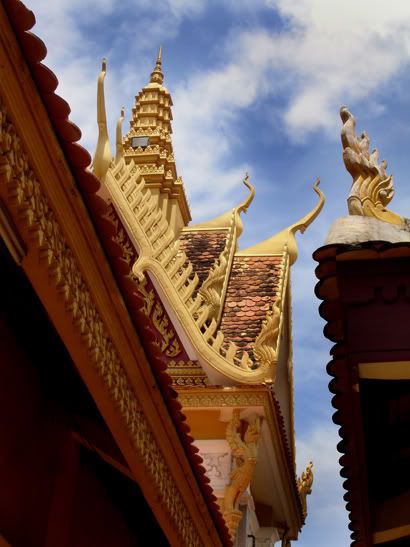
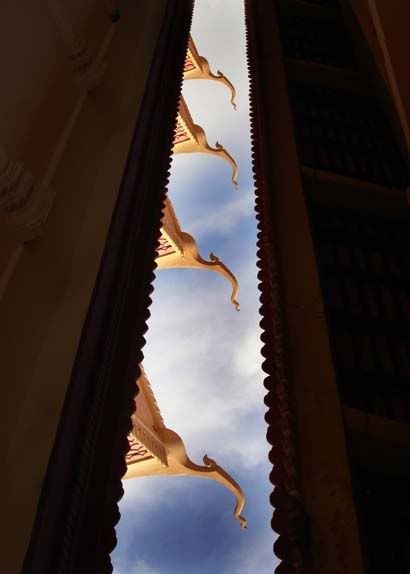






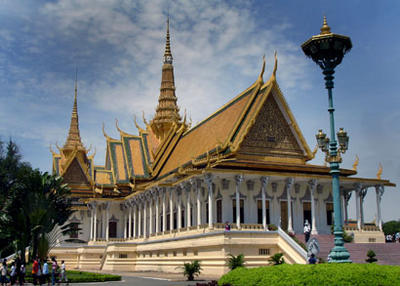










.jpg)



0 comments:
Post a Comment